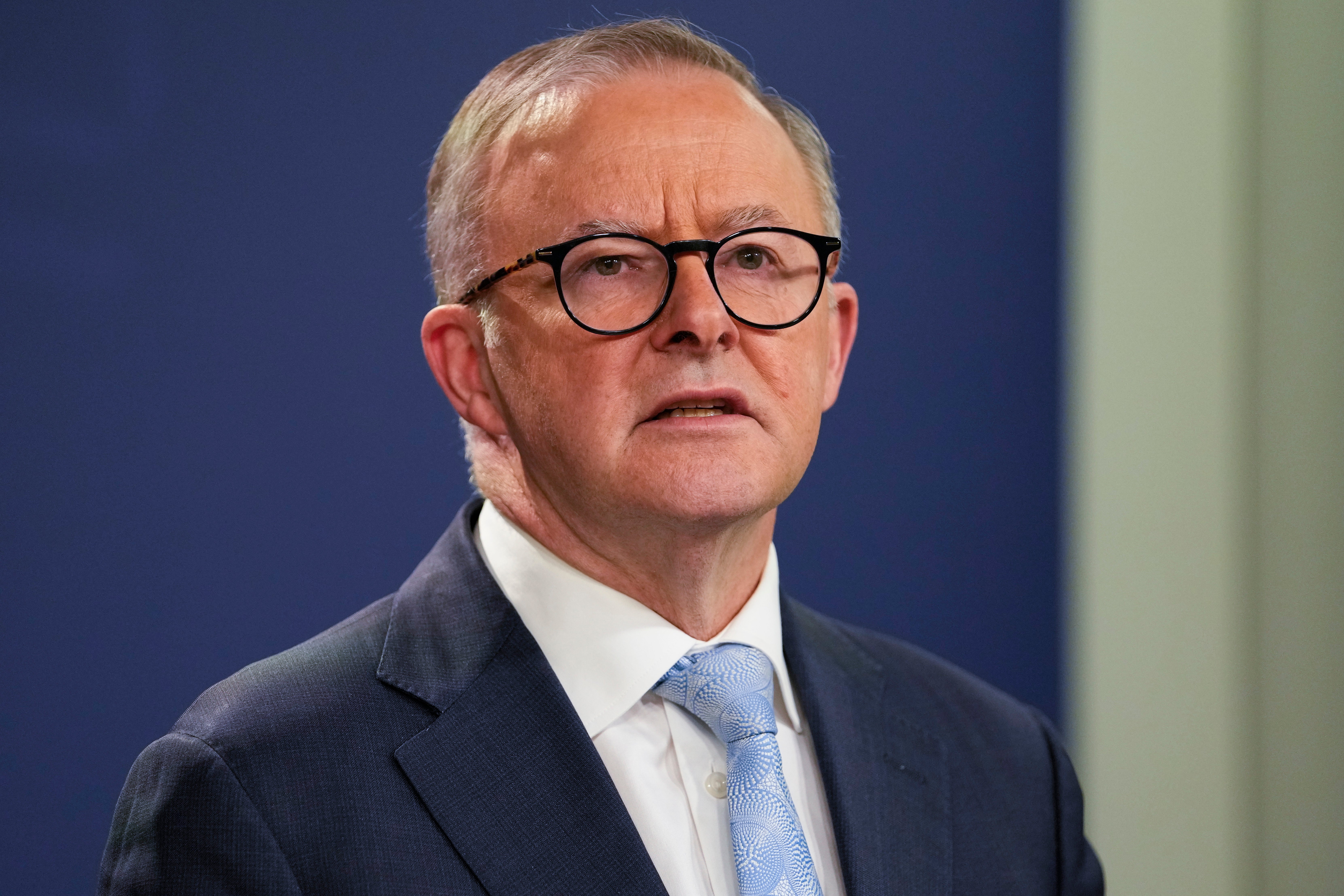Australian PM dismisses calls to demand US drops prosecution of Assange
Anthony Albanese refused to say whether he had discussed the case with President Joe Biden after the UK ordered the WikiLeaks founder’s extradition.

Your support helps us to tell the story
From reproductive rights to climate change to Big Tech, The Independent is on the ground when the story is developing. Whether it's investigating the financials of Elon Musk's pro-Trump PAC or producing our latest documentary, 'The A Word', which shines a light on the American women fighting for reproductive rights, we know how important it is to parse out the facts from the messaging.
At such a critical moment in US history, we need reporters on the ground. Your donation allows us to keep sending journalists to speak to both sides of the story.
The Independent is trusted by Americans across the entire political spectrum. And unlike many other quality news outlets, we choose not to lock Americans out of our reporting and analysis with paywalls. We believe quality journalism should be available to everyone, paid for by those who can afford it.
Your support makes all the difference.Australia’s Prime Minister has dismissed calls to publicly demand the US drops its prosecution of Julian Assange after the Wikileaks co-founder’s wife expressed hopes the government in Canberra would intervene.
Anthony Albanese, who was elected last month, refused to say whether he had discussed the case with President Joe Biden after the UK ordered the Australian citizen’s extradition on spying charges last week.
“There are some people who think that if you put things in capital letters on Twitter and put an exclamation mark, that somehow makes it more important. It doesn’t,” Mr Albanese told reporters on Monday.
“I intend to lead a government that engages diplomatically and appropriately with our partners.”
The Australian government has been under pressure to come to Assange’s aid over the case, which his supporters say amounts to a political attack on actions protected by the US constitution.
Mr Albanese’s comments come after the Australian citizen’s wife earlier on Monday urged the Government to urge its “closest ally” to “bring this matter to a close”.
In an interview with the Australian Broadcasting Corporation’s (ABC) Radio National, Stella Assange branded the case against her husband an “aberration” that criminalises journalism.
Mrs Assange, who shares two children with the WikiLeaks co-founder, said she believed there had been signs of progress in Australia’s handling of the case since the election of the Labour leader last month.
“There’s definitely a shift,” she said of the new government’s approach. “It feels like we’ve been running a marathon for a long time… But now it feels like we have many people running alongside us and we might see the finish line.”
Mrs Assange used the interview to repeat concerns she has voiced about her husband’s physical health, which is said to have deteriorated dramatically over the three years he has been detained in Belmarsh prison.
“It’s a nasty environment and it would deteriorate anyone’s health but he was already in a bad health situation when he entered the prison,” she said, adding that her husband had suffered a “mini stroke” in October of last year.
“So his health was in decline and we’re extremely worried that he will at any moment have a catastrophic health episode inside Belmarsh prison without the ability to get emergency treatment – because that’s the nature of prisons, basically.”
The WikiLeaks co-founder is wanted by the US on 18 counts, including a spying accusation, after his organisation published confidential military records and diplomatic cables. If convicted of breaching the Espionage Act, Assange faces up to 175 years in jail.
Following the Home Secretary Priti Patel’s signing of an order to extradite Mr Assange to the US on Friday, reports emerged in Australian media that the newly elected Albanese government was lobbying its US counterparts behind the scenes to have him freed.
In a statement, the country’s Department of Foreign Affairs and Trade said it was continuing to provide consular assistance to Assange, but could not intervene.
It also added that Assange’s case had “dragged on for too long and that it should be brought to a close”.
On Monday, Australia’s immigration minister Andrew Giles said Mr Albanese had “made clear that enough was enough for Julian Assange and the treatment that he had been subjected to” in the case.
The Australian has spent more than three years in prison after spending years in the Ecuadorian embassy, where he had been living since 2012.
Jennifer Robinson, a lawyer for Assange, told a press conference in London on Friday his legal team would be appealing against Ms Patel’s decision to grant his extradition.